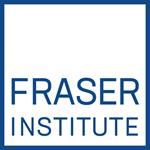VANCOUVER, British Columbia, Nov. 21, 2024 (GLOBE NEWSWIRE) — The provincial government in British Columbia needs to rethink how children are educated, as student performance in math, reading and science has continued to decline despite higher levels of per-student spending in recent years, finds a new report published today by the Fraser Institute, an independent, non-partisan Canadian public policy think-tank.
“Just spending more on K-12 education does not lead to better student outcomes,” said Michael Zwaagstra, Fraser Institute senior fellow and author of K-12 Education Reform in British Columbia.
The study finds that from 2012/13 to 2021/22, per-student spending (adjusted for inflation) increased in BC from $13,839 to $14,767–a 6.7 per cent increase.
But over the same 10-year period, student performance declined. The average scores for BC students on the international Programme for International Assessment (PISA) tests in math dropped from 522 in 2012 to 496 in 2022. Scores also declined in reading (535 to 511) and science (544 to 519).
The study highlights a number of reforms to the education system in BC that could help improve student performance:
- Reverse changes made to the provincial curriculum.
- Restore previous course-based standardized exams for Grades 10 and 12, and make them count towards final grades.
- Allow parents and other community members to establish charter schools, as is done in Alberta.
- Consider income-tested school vouchers–as in done in Australia–which increase the amount given to low-income families so that all families can send their children to independent schools if they choose.
- Like Sweden, change the eligibility rules for the current voucher program so that for-profit schools are treated the same as non-profit schools, providing parents more choice.
“Given the current mix of higher spending and declining academic results, the provincial government should consider a broad range of education reforms to achieve better value for money and improved results for both students and taxpayers,” Zwaagstra said.
MEDIA CONTACT:
Michael Zwaagstra, Senior Fellow
Fraser Institute
To arrange media interviews or for more information, please contact:
Drue MacPherson, Fraser Institute, (604) 688-0221 Ext. 721
drue.macpherson@fraserinstitute.org
Follow the Fraser Institute on Twitter | Like us on Facebook
The Fraser Institute is an independent Canadian public policy research and educational organization with offices in Vancouver, Calgary, Toronto, and Montreal and ties to a global network of think-tanks in 87 countries. Its mission is to improve the quality of life for Canadians, their families and future generations by studying, measuring and broadly communicating the effects of government policies, entrepreneurship and choice on their well-being. To protect the Institute’s independence, it does not accept grants from governments or contracts for research. Visit www.fraserinstitute.org

COMTEX_460035192/2471/2024-11-21T08:00:07
